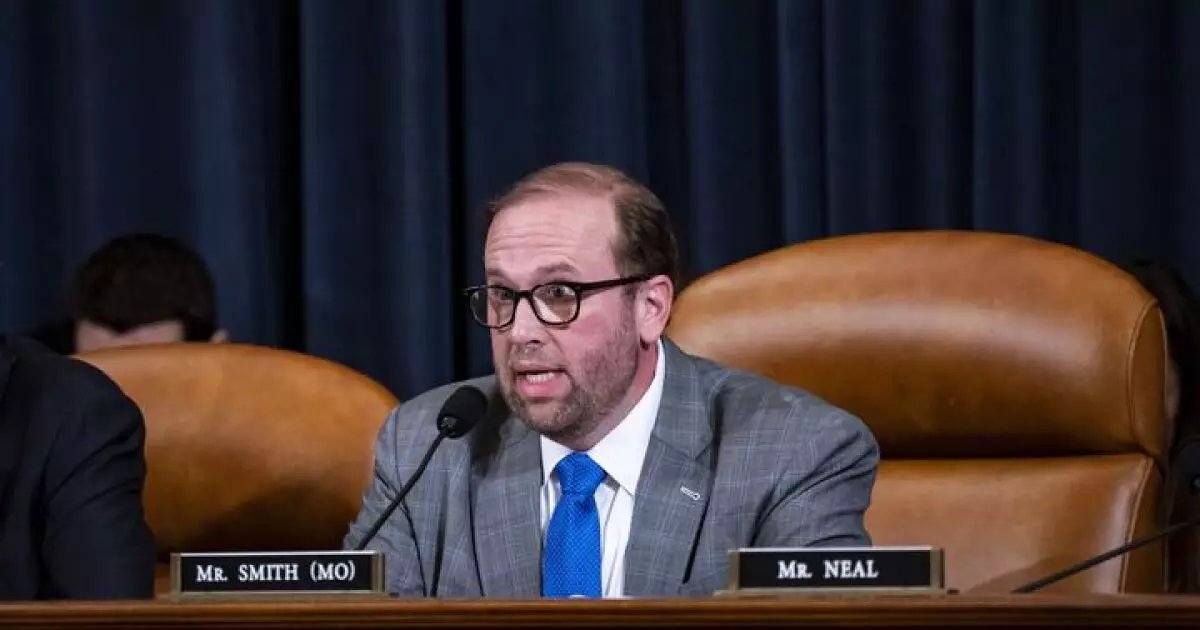The 119th Congress has ignited a pivotal conversation centered around the future of the Tax Cuts and Jobs Act (TCJA). This debate encapsulates a dichotomy: on one side lies the pressing issue of national debt, while on the other, the promising potential for economic growth. This conversation carries significant weight for stakeholders in municipal finance, where there is a palpable unease regarding the protection of the tax-exemption status amidst discussions to potentially extend the original Trump tax cuts. The outcome of this debate could redefine fiscal policy and its impact on a variety of sectors.
According to House Ways and Means Committee Chairman Jason Smith, the TCJA catalyzed America’s economic resurgence post-Obama administration. His argument rests on several key metrics: increasing wages for American workers, historically low unemployment rates, and a significant reduction in poverty levels. This characterization implies that tax cuts effectively functioned as an economic stimulant during a critical transitional period. Advocates for the TCJA assert that this legislative initiative was paramount for rejuvenating economic activity.
However, the reality presented by the Democratic minority exposes a contrasting perspective. Their analysis scrutinizes the sustainability of this perceived economic boom, attributing it to a corresponding rise in national debt. Ranking Democrat Richard Neal has questioned the logic of coupling extensive tax cuts with a burgeoning national deficit, definitively arguing that such a juxtaposition raises substantial concerns over long-term fiscal health. Herein lies a crucial tension: can economic growth be sustainably financed without exacerbating the national debt?
Amidst the broader discussions on tax policy, the TCJA incorporated contentious provisions that resonate deeply with the municipal finance sector. These include the cessation of advance refunding on tax-exempt bonds and the imposition of a $10,000 cap on state and local tax (SALT) deductions. The repercussions of these changes are substantial, as they alter the landscape of municipal finance and could impact local governments’ ability to fund essential services and projects.
As the debate unfolds, both parties uphold certain shared beliefs, especially when it pertains to maintaining individual tax rates for middle-class households. Nevertheless, significant divergence persists regarding potential modifications to corporate tax rates and SALT deductions. The House committee session, rife with testimonials from small business owners and concerned taxpayers, illustrates the contentious nature of this debate—a clear attempt by Republicans to shore up support for extending the TCJA.
The National Debt Dilemma: Balancing Act or a Path to Chaos?
The pressing question regarding the national debt casts a significant shadow over the tax discourse. The assertions made by members of Congress expose differing philosophies about taxation and national economic strategy. On one hand, some Republicans push for continuance of the TCJA under the belief that tax relief boosts economic vitality. On the other side, Democrats propose a recalibrated tax structure, advocating for increased fiscal contributions from wealthier individuals and corporations to mitigate rising national debt—an idea reinforced by comments from influential political figures that stress the need for fiscal realism.
This ideological clash sets the stage for more extensive conversations, not only about tax cuts but also about the implications for the debt ceiling. As lawmakers navigate this terrain, the decisions made could influence not just the America’s fiscal policy but the nation’s credit rating, setting off broader implications for economic stability and growth.
The Road Ahead for the 119th Congress
As the 119th Congress moves forward, the clarity of priorities may dictate the legislative trajectory. Between the pursuit of economic growth and the overarching need to address liabilities accumulating via the national debt, the stakes are considerable. The committee’s newly appointed subcommittee chairs, alongside their legislative approaches, will determine the effectiveness and direction of the discussions surrounding the TCJA.
Ultimately, the resolution of these debates promises to have a profound impact on American families, businesses, and the caliber of municipal finance. The decisions made by Congress will shape fiscal policy for years to come, potentially influencing everything from local government funding capabilities to individual taxpayers’ financial health. The intricate dance between fostering growth and managing debt will remain at the forefront, as the nation looks towards fiscal stability in an increasingly uncertain economic future.

